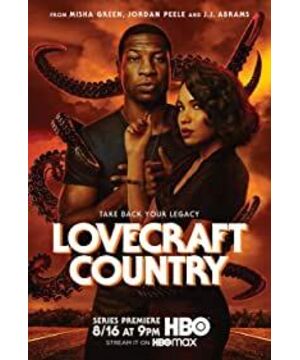Is Love Craft a racist?
The answer to this question is yes. Love Craft (hereinafter referred to as Love Craft) does not hide his racist views in his works of Cthulhu. I believe people who have seen works such as "Medusa's Curly Hair" No fans will object to this.
Craftsmanship was born in Providence, Rhode Island, USA in 1890. The conservative family education and the xenophobic environment of Providence provided the soil for craft-loving racist ideas. In his limited works mentioning blacks and immigrants , Their images are biased towards superstition, ignorance, uncivilized, inferior racism.
However, the racist ideology of loving craftsmanship was not special in the white American society at the time. He grew up only 20 or 30 years after the end of the Civil War. At that time, the American society was full of science and economic prosperity, but the entire society was flooded. Social Darwinism, black people are considered to be inferior to the race, so love of craftsmanship also carries this view in his works.
If the prejudice and discrimination against blacks by craftsmanship can be explained by the limitations of the times, there is no doubt about his own opposition to interracial marriage and mixed race (for details, please refer to the documentary "Unknown Fear"). The image of is even worse, in the words of Love Craftsperson, "You saw a forbidden portrait, a monster that shouldn’t exist, a weird religion, and a person who was killed in front of you, and you feel that all this is not as bad as a mixed race. ", so that when I read his works, I can sum up a rule: once a cult appears on the scene, there must be mixed-race cultists.
Anti-Romanism
With the development of the times, the racist ideology of love for crafts has been criticized more and more. Among them, the most popular in recent years is anti-Romanianism. Anti-Romanianism or anti-Love Kraftism is not an anti-love craftsmanship literary work. Or anti-Cthulhu culture, but criticize and reflect on the love of craftsmanship and the racist ideas in its works, and then re-deconstruct and express one’s own views. Goodreads’ definition of anti-Romanian works is: conscious attempts to challenge and subvert Luo Works of racism, sexism, and conservative/right-wing views in the early Cthulhu mythological novels of Kraft.
In short: take the essence and discard the dross.
Devil's Land
"Devil's Land" is based on the novel "Lovecraft Country" of the same name. It is set in 1954 in the background of apartheid. The protagonist is the 22-year-old black young Atticus.
Atticus was a veteran of the Korean War (this detail can be seen from Atticus calling South Korea in the play). His father disappeared after leaving with a strange white man in one day. Atticus guessed His father was involved in tracing his mother’s family history. In order to track his father’s whereabouts, Atticus went to his mother’s ancestors with Uncle George, who was the editor of the "Black Safe Travel Guide" (the green booklet in the movie "Green Book"), and his friend Laetitia. The residence of Adem (from Arkham where the evil god appeared in the pen of Ai Craft).
"Devil's Land" focuses on black racial issues as a whole, and criticizes white supremacy based on the background of Cthulhu mythology. It is a typical anti-Romanist work. Producer Jordan Peel used his experience in directing horror films (previously "Escape from Death Town" and "We") to add many B-level film elements to it. Scenes such as broken arms and limbs, blood plasma splashing, etc. are naturally indispensable. Less, while maintaining the tone of reflection, it also brings a fun audio-visual experience.
View more about Lovecraft Country reviews











